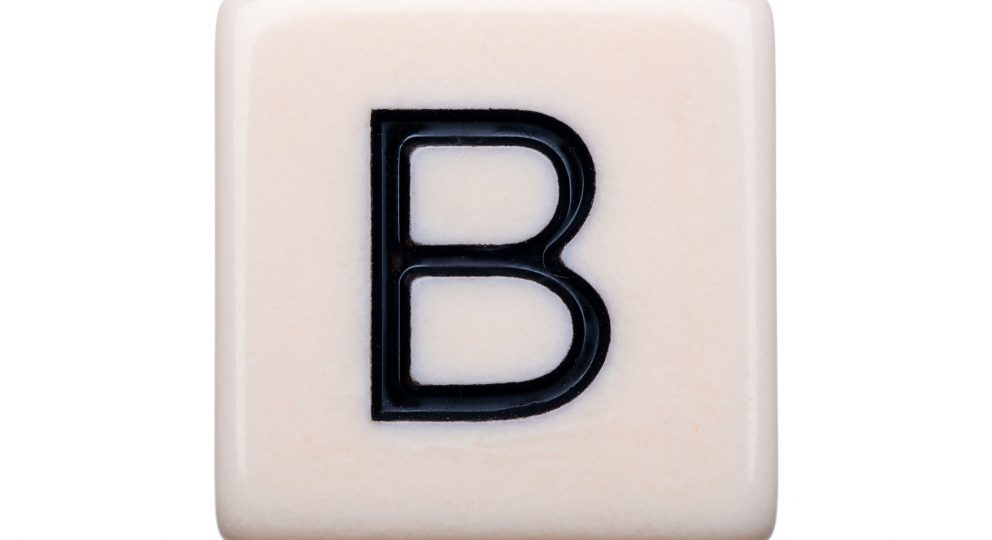Zach Brittle is a Licensed Mental Health Counselor and Certified Gottman Therapist specializing in couples therapy. This post begins his series called the “Relationship Alphabet.”
Just for kicks, I decided to ask Google for help finding marriage and relationship words that started with “A.” I got a lot of help with my Scrabble game, but not too much else. I did find one site dedicated to “marriage vocabulary.” The list of “A” words included: Acceptance, Admiration, Affection, Affinity, Allegiance, Appreciation, Approval, and Attentive.
All of those words are relevant and essential to a healthy relationship. They’re good words. And I think that you should accept and admire and all those other things with your partner, but I also think you should argue. Maybe it’s just me, but I think if you’re not arguing, you’re probably not committed.
When engaged couples come into my office for pre-marital counseling, one of my first questions is, “Could you tell me about when/how/why you argue?”
If they don’t or can’t or won’t argue, that’s a major red flag. If you’re in a “committed” relationship and you haven’t yet had a big argument, please do that as soon as possible. It’s important for you to understand the anatomy of your arguments. To discover the patterns…the themes. Most importantly it’s important for you to know that arguing is okay. It can even be productive.
In Gottman Method Couples Therapy we actually ask couples to argue during the first few sessions. Arguing is just part of the deal…it’s one of the permissions of a committed relationship, kind of like sex. Think about it. You get to have sex with your partner and you get to yell at them at the top of your lungs. Can you do that with a colleague at work? No? Didn’t think so. Yes? Maybe you need to look for a new job.
There’s something special about a truly committed relationship. Something sacred.
Dr. John Gottman discovered that about two-thirds of all arguments were perpetual. This means that, most likely, five years from now you’ll be fighting about the same thing you were fighting about five years ago. It might be her mother or the way you put away the dishes or his introversion. It doesn’t matter. It’s not going away.
Can you wrap your head around that? Sixty-nine percent of your problems are perpetual. That is simply and statistically true. If you can accept that, consider this question: Is that encouraging or discouraging?
Think about that question for a minute. If you knew with certainty that most of your problems were unsolvable, would that give you courage or would it deflate you?
Typically, when it is discouraging for my clients, it’s usually because they know exactly what their perpetual problems are and they are overwhelmed with the idea that they may have to spend the next 35 years arguing about them.
When it is encouraging, it’s usually because they realize that they’re (statistically) normal. The fact that they are having the same argument over and over isn’t a sign that their relationship is doomed. It may actually be a sign that their relationship has a hope they hadn’t previously imagined.
My bias is that the reality of perpetual problems is encouraging. It allows, requires, even invites, perspective about the role that conflict plays in our relationships. More importantly, it suggests that we have agency in the midst of our arguments.
What does agency mean? It means you’re not subject to the whim of the moment. It means you can choose in the midst of that very same moment.
Choose kindness. Choose humor. Most importantly, choose perspective.
It’s pretty easy to get caught up in the power of a single argument, but what if you took a few steps back to explore the anatomy of all your arguments. How do they start? How do they escalate? How do they go off the rails? How do they end?
If you could map them out, understand them, predict them, perhaps you could defuse them. Kindness helps. It can pave the way to repair and remind you that your relationship is bigger than your argument. Humor helps. It can break the tension of the moment and provide the opportunity to connect anew.
I’m not suggesting that some arguments aren’t worth pursuing. About 31% of them have to be addressed. It could be your anniversary. Her affair. His addiction.
Whatever it is, whenever you can solve an argument, do. Whenever you can’t, recognize and remember that you’re normal, that kindness and humor help, and that in the end, perspective is key.
Whether you find it encouraging or discouraging, arguing is simply part of the deal for committed relationships. You get to choose what you do next.
Read the next post in the Relationship Alphabet series: B is for Betrayal.
If you want to build a meaningful relationship, then subscribe below to receive our blog posts directly to your inbox:





